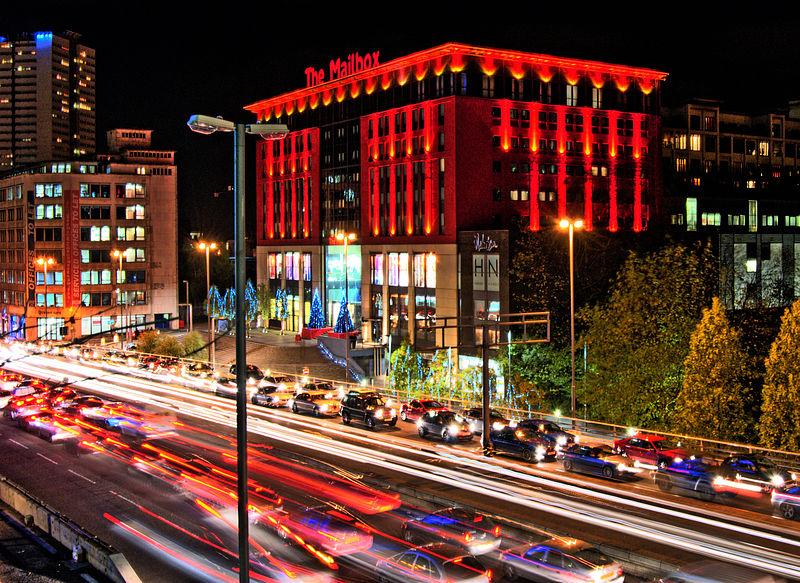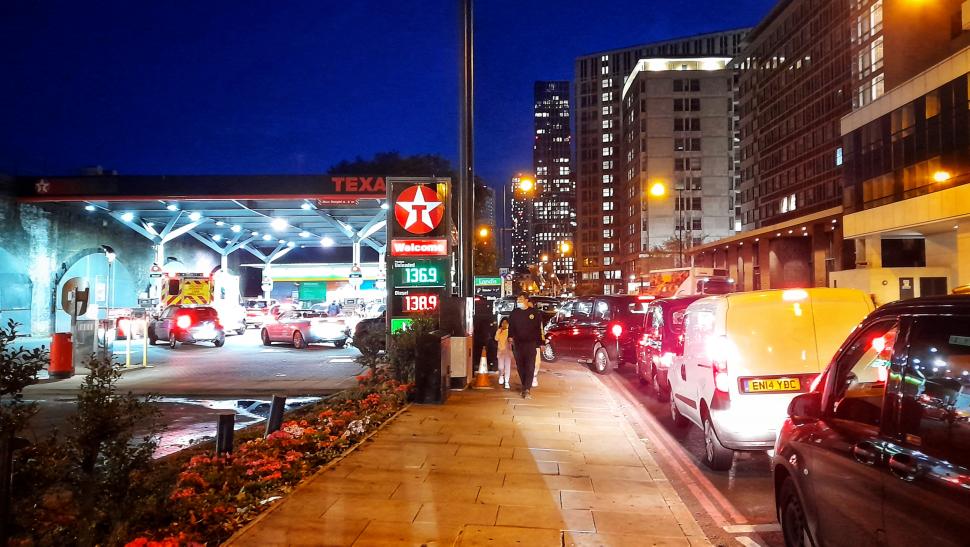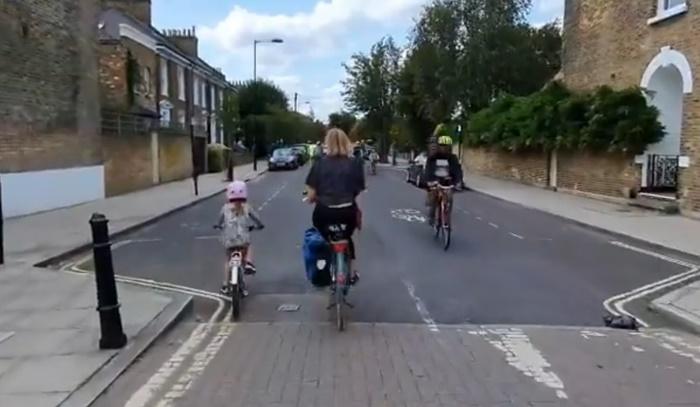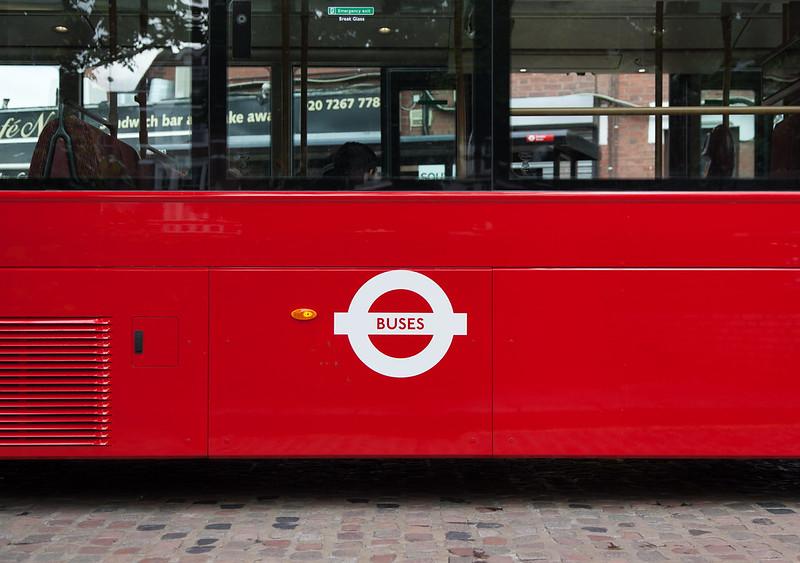- News
- Reviews
- Bikes
- Accessories
- Accessories - misc
- Computer mounts
- Bags
- Bar ends
- Bike bags & cases
- Bottle cages
- Bottles
- Cameras
- Car racks
- Child seats
- Computers
- Glasses
- GPS units
- Helmets
- Lights - front
- Lights - rear
- Lights - sets
- Locks
- Mirrors
- Mudguards
- Racks
- Pumps & CO2 inflators
- Puncture kits
- Reflectives
- Smart watches
- Stands and racks
- Trailers
- Clothing
- Components
- Bar tape & grips
- Bottom brackets
- Brake & gear cables
- Brake & STI levers
- Brake pads & spares
- Brakes
- Cassettes & freewheels
- Chains
- Chainsets & chainrings
- Derailleurs - front
- Derailleurs - rear
- Forks
- Gear levers & shifters
- Groupsets
- Handlebars & extensions
- Headsets
- Hubs
- Inner tubes
- Pedals
- Quick releases & skewers
- Saddles
- Seatposts
- Stems
- Wheels
- Tyres
- Health, fitness and nutrition
- Tools and workshop
- Miscellaneous
- Cross country mountain bikes
- Tubeless valves
- Buyers Guides
- Features
- Forum
- Recommends
- Podcast
 Birmingham Mailbox and traffic (licensed CC BY-SA 2.0 by Bs)u10e01 on Wikimedia Commons)
Birmingham Mailbox and traffic (licensed CC BY-SA 2.0 by Bs)u10e01 on Wikimedia Commons)Weekend traffic now slower than rush hour as experts blame car journeys... but transport editor claims cycle lanes and LTNs contribute
This weekend The Times newspaper shared the news that the average speed of traffic in UK cities had slowed by up to 2.5mph in the three years since before the pandemic, with transport data firm Basemap's analysis showing drivers travelling at weekends take longer than during weekday rush hours.
The numbers showed that motorists in urban areas travelling between 7am and 7pm on weekends would take longer to complete their journeys than during the weekday rush hours of 7am to 9am and 4pm to 7pm as average speeds in London, Birmingham and Manchester have all dropped.
> "Incredibly simplistic" to blame cycle lanes for London being named world's most congested city
In Birmingham, the weekend reduction from 16.5mph in 2019 to 14.2mph in 2021 means average traffic speed is now 1.1mph slower at the weekends than during weekday rush hour.
The picture is mirrored in London and Manchester where weekend average speeds have reduced 2mph and 2.4mph respectively, and while transport editor Nicholas Hellen added LTNs and cycle lanes to the list of "causes" in his social media post sharing the article, the experts who contributed to the story disagree.
Weekend traffic now slower than rush-hour crawl
Urban journey times drop by up to 2.5mph since Covid
Causes: Car-led recovery, surge in Amazon deliveries, LTNs, 20mph limits, cycle lanes,
@AAPresident @createstreets @dannydorling https://t.co/bNcxUdA8yT
— Nicholas Hellen (@NicholasHellen) October 16, 2022
Danny Dorling, a professor of geography at Oxford said it was wrong to blame 20mph speed limits or LTNs.
"The changes to our road system, whether 20mph speed restrictions or low-traffic neighbourhoods, are far too small to account for this slowdown in speed," he told The Times.
"The big thing that has happened is that more people are trying to use their cars in different ways than before the pandemic. It does not take much of an increase to suddenly have this effect."
Equally, David Milner, the deputy director of Create Streets — a foundation which has influenced government planning policy — concluded that "private cars are an inefficient use of space in towns and cities".
The Times story ends with a quote from AA president Edmund King who suggests "quality park and ride or park and e-bike facilities" could help ease gridlocked cities that "will only push out more residents and commuters to the suburbs and beyond".
> Cycle more, drive less once pandemic ends, urges AA president
So, not much mention of cycle lanes or LTNs there, something plenty noticed after reading the tweet attributing slower traffic, in part, to policies making active travel safer.
Reading the article, it is evident to me that it is just Hellen’s assertion that LTNs/bike lanes/20 limits are “causes” of congestion - the experts quoted don’t say that, citing only post-pandemic resurgence of car use (displacing bus use) and explosive growth in courier vans. https://t.co/YAxtmNr1rN
— PaulM 🇮🇪🇫🇷🇨🇦🚲🐟🌻 (@Onebiskuit) October 17, 2022
“The changes to our road system, whether 20mph speed restrictions or low-traffic neighbourhoods, are far too small to account for this slowdown in speed.”
From the article.
— Ewan Chamings (@echamings) October 16, 2022
So what is the 'cause'? Transport editor Hellen notes "the roads have become busier as passengers initially shunned public transport and have not fully returned to it", adding rail travel still sits at 88 per cent of pre-pandemic levels, 91 per cent outside of London, and 80 per cent on the London Underground.
At the same time, van traffic has soared to 116 per cent of pre-pandemic levels in response to the increased demand for online shopping, while car traffic is at 96 per cent, according to the Department for Transport.
On the topic of getting people out of vehicles, a 2021 study showed people are most likely to cycle to work when traffic speeds on their route are below 20mph. Furthermore, a poll from March this year found that LTNs in Hackney had encouraged a quarter of residents to cycle more, while 30 per cent said they drive less.
Hellen's article also raised the issue of financial losses for bus network providers caused by slower speeds, with head of performance at Transport for London Nick Owen explaining a 1mph drop in the speed of bus journeys costing the authority about £200m a year due to passengers staying away.
University of Oxford professor Dorling added: "If buses can actually go at 20mph, the journey is much faster than if they were travelling on a road where the official speed limit is 30mph but congestion means that you're very often going under 10mph."
[Licensed CC BY-SA 3.0 by Tom Page on Flickr]
Last month, the chief executive of one of the UK's largest public transport companies, Go-Ahead Group, urged politicians to banish cars from urban roads to make cities cycling-friendly.
Christian Schreyer said: "The question is: is the road dedicated mainly to cars? Or is it dedicated to bicycles, and public transport and buses?"
He pointed out in the Netherlands: "Next to the bus you have your bicycle lane and then you have pedestrians. No one complains anymore. For me, there's no alternative if you want to, on the one hand, achieve the climate targets and on the other hand, you want to make cities attractive again."
Dan is the road.cc news editor and joined in 2020 having previously written about nearly every other sport under the sun for the Express, and the weird and wonderful world of non-league football for The Non-League Paper. Dan has been at road.cc for four years and mainly writes news and tech articles as well as the occasional feature. He has hopefully kept you entertained on the live blog too.
Never fast enough to take things on the bike too seriously, when he's not working you'll find him exploring the south of England by two wheels at a leisurely weekend pace, or enjoying his favourite Scottish roads when visiting family. Sometimes he'll even load up the bags and ride up the whole way, he's a bit strange like that.
Latest Comments
- Hirsute 17 min ago
First thing to check is whether this applies to NI.
- matthewn5 30 min 38 sec ago
Thanks @Rendel, I'll look into them - they compare well with the Terreno Zeros that I already tried:...
- David9694 5 min 20 sec ago
Our car-dominated urban environment is repressive and hot - let's see if we can desecrate the countryside ...
- chrisonabike 33 min 47 sec ago
Are you confusing a clearly opinionated - nay, biased rag like road.cc with a balanced, respectable news organisation like the BBC?
- Hirsute 1 hour 37 min ago
Car spreading https://climatevisuals.org/carspreading/ https://cleancitiescampaign.org/carspreading
- Bigtwin 1 hour 49 min ago
"Welcome to your local Council - you don't have to be a moron to work here, but it really helps if you want to blend in".
- Rendel Harris 2 hours 6 min ago
Laverack still offer the same machine in a rim brake version so the "disc" is there to differentiate it from its stablemate.
- mdavidford 2 hours 44 min ago
Quite right - get those soapboxes off our roads. As everyone knows, the right place for them is the internet.
- Bungle_52 2 hours 47 min ago
It's finally live. Here is the link :...



Add new comment
31 comments
Drivers warned of weekend traffic woes seems to have become a weekly feature in the Southampton Echo. Cruise ships are in, the football team are at home, roadworks - probably a fleet of cargo biking Amazon guys and an LTN to blame.
I blaze away in the Comments column some times but drivers won't engage with any talk of some sort of solution.
Note: That stretch of the A38 past the Mailbox in Birmingham (pictured in the title image) is a bad one. Not only is it a key arterial road through Birmingham, connecting Edgbaston and University of Birmingham in the south to Aston and leading onto the M6 in the South, it has wayyyyy too many little feeder slip roads that go into eminently busy parts of town. For instance, that image shows part of the slip road to the town hall car park (cheapest in town), in turn leading to Broad Lane and around New Street.
The solution? Some would say we need More arterial roads. For my part, I think this is a really good chance for Brum councils to extend and enforce their Clean Air Zones further into the city centre. I find it confusing why the CAZ exists but doesn't yet seem to deter motorists; a sign, perhaps, that motorists still drive into town despite the £8 charge, which in turn could do with being increased.
i stopped using the car on Sundays years and years ago. The 'rush hour' lasts all day on Sunday - I noticed that a long time ago.
I rode out a couple of weekends back, lots of traffic, lots of congestion. Bit of bicycle shopping, Halford's reflective slap bands and Decathlon for muc off disk brake cleaner, no aerosols in the post these days.
Made me wonder about the death of the high street, declining economy and cost of living crisis. So what are they all doing?
Aerosols can be sent by courier though. Expecting degreaser from Wiggle in the next couple of days.
I can remember when the Times was a lot more honest and factual, not the sad, limp shadow of the Thunderer of old. I'd report Hellen's stupid comment to the Press Complaints Commission, but they're even less effectual than the Times.
"Causes [of the fall in urban car speeds] : Car-led recovery, surge in Amazon deliveries, LTNs, 20mph limits, cycle lanes,..."
The fact that a Transport Editor can seriously publish such utter nonsense is a tribute to how out of touch she is. The fact that she still has a job is a testament to how incredibly biased the media is about transport.
It's absolutely dreadful, my mother still buys it for no better reason than she's been buying it all her life so I grew up with it, the drop in quality in the writing and general attitude over the 50 years I've seen it has been enormous. Even when they are being positive they can't help saying something negative about cycling, check out this subhead from the weekend, apparently if you buy an electric cargo bike you'll be "annoying drivers".
That would explain a lot.
In relation to Birmingham City Centre , I suspect the slow down in traffic at weekends has little to do with LTNs or cycle lanes as there arent any signifciant ones in the City Centre. I suspect it has more to do with shoppers/visitors in cars trying to find a space in the City's ever dwindling & expensive car parking provision. Whilst many would like to use public transport, if you live here you'd know it isn't great. The tram system is a lovely idea in principle but it doesn't seem to be a great people mover, has had all sorts of operational issues and it's literally being built at glacial speed. I'd put the balme squarely on the City Council who seem to introduce policies to actively discourage people supporting City Centre businesses. This has nothing to do with promoting cycling as they dont seem to do that either.
The thing is, If they wanted more people to consider taking public transport more often then they should make fares cheaper to incentivize it.
Every year they bump up the prices but services never seem to improve and they go on strike all the time.
When I first moved here nearly 20 years ago, it cost 90p each way for the 3.4 mile round trip. Its now £2.50 each way.
All day parking in town is £4. Thus, its a quid cheaper to drive (without taking fuel into account)... *
* Or free if you cycle.....
When I were a kid, growing up in London, you used to be able to hop on and off buses without needing to keep buying tickets. Maybe that's why they've got doors on the entrance/exit now.
There was little in life that made one feel cooler than hopping on a moving bus in the Strand or Whitehall while the conductor was upstairs, riding it for a few stops and then hopping off wherever you chose. Probably not the best economic model but it was great fun.
That is a bargain, my local bus £4.80 for a similar journey. No wonder it is mostly frequented by OAP s with a free bus pass.
Would have been easier to do that if all of the bus services outside of London hadn't been taken out of public ownership years ago, privatised, and then handed over to huge companies running a virtual monopoly in each area...
I know thats not entirely true as my local one isnt. Its an arms length company of the local council. I would be interested in knowing whether its the exception rather than the norm nowadays though.
The only one I have heard of is Ipswich buses.
https://www.ipswichbuses.co.uk/about-us/
Nottingham bus co is privatised but majority owned by local council still.
But Ipswich buses are perfect example of public ownership doesnt always work.
the council turn derelict plots of land in the town into car parks, with charges that undercut the bus fares, then end up cutting the bus services as no one is using them.
And I've no idea what this ad is meant to be promoting, buses are better exercise than cycling ?
Pretty sure it's an exception.
It is. There aren't many not owned by First or Stagecoach.
Edinburgh is another exception to add to those mentioned. Other councils run occasional routes the private operators won't.
https://en.wikipedia.org/wiki/Municipal_bus_company
London buses aren't publicly-owned but they are run under contract to TfL, so fares, routes, frequencies, etc. are all publicly controlled.
Another tory success! When will the winning stop?
Just heard the latest opinion poll, and it predicts that if people voted today, the tories would be the fourth largest party in parliament, after labour, the lib-dems and the SNP, with something like 25 seats.
Yes because BR, Royal Mail et al were all such huge successes under public ownership!
If a publicly owned company, indeed any company, is starved of resources it will flounder and fail. British Rail and the Post Office were starved of money for decades to make sure people were angry, the electorate were then sold privatisation as a panacea while the business was then sold for a song before being either asset stripped or pumped full of debt. But don't let facts get in the way of your prejudices.
You write that and mention my prejudices! Clearly my memory is better than yours.
If you say so...
I had a decent ride out off road on Sunday, but didn't want to cycle the last 6 miles home as it was back on really crappy roads. I took the train back, a journey of 12 minutes and 3 stops. Ticket office closed and no off peak option for the journey, therefore £5.70. If I were to be back in the office 5 days a week and look for an annual ticket it is now £4280. When your local public transport is so woeful you already have a car, that is a lot of petrol, C charges etc. Is it any wonder people drive instead?
While I cycle a lot and use a mix of cycle and public transport for work, the simple fact is that even where we are just outside of London in Kent, public transport is so expensive and unreliable I won't be giving a car up any time. To most more rural villages/towns buses don't go beyond about 20:00. With a mix of strikes and engineering until last Saturday we hadn't seen the big issue seller at the supermarket for weeks.
I love cycle lanes as they are somewhere to leave my BMW while I pop into the chippy for my lunch; pick up my dry cleaning and of course, get some fags.
We need more of them.
Regards
BMW i3 Sports driver (electic so doing my bit for the planet).
40 minutes I took to drive Mrs Mungecrundle about 5 miles into Lincoln last Saturday to visit 2 shops that didn't have what she wanted. Then at least 30 minutes to get back out as far as the ring road. I'm not surprised habitual drivers who face that most days become deranged. Cars, cars, cars. Cycles may be traffic but they don't cause congestion!
I think we need some research to find out whether they were deranged before they got a car, or became deranged from driving it.
My money's on the first.
You forgot the bookies.
Pages